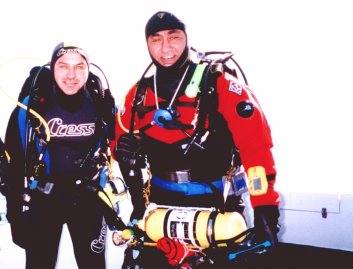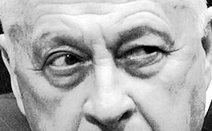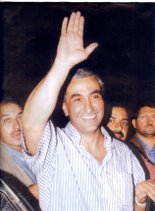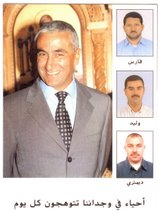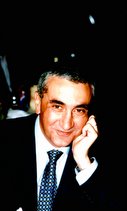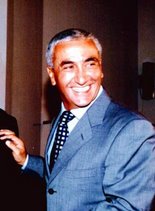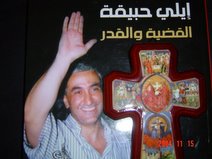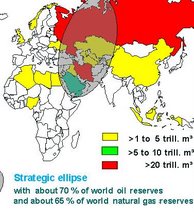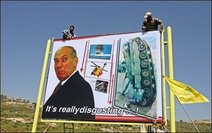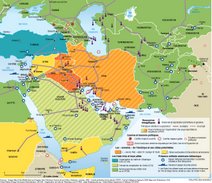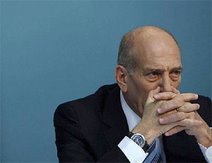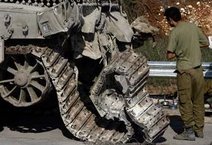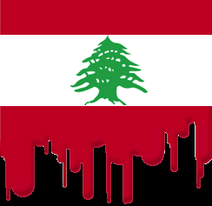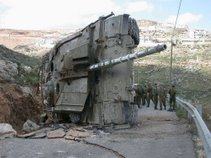
Take the profit out of warfare and there would be peace; take the profit out of illness and there would be health; take the profit out of addiction and there would be temperance; take the … hey, I won’t belabor the point; you can see where I am going with this – follow the money and discover the culprits. Without the profit motive, the U.S. and other countries might actually have ethical representative governments who assist the citizens instead of the multinational scoundrels ensconced in their bank buildings, laboratories, corporations and foundations – protected by a multitude of laws they have effectively maneuvered through the U.S. Congress by well-compensated politicians who comply with former well-compensated politicians, now lobbyists, who collect hefty, self-appointed congressional pensions. It shouldn’t take a rocket scientist to discern that there is something drastically wrong! As you read the following historical accounts, make some contemporary comparisons. Same banking cabal, same lies, methods, and circumstances – frequently even the same group of political puppets.
One of J.P. Morgan’s top attorneys, Philander Knox, in 1901, “arranged the merger of the railroad, oil, coal, iron and steel interests of Carnegie, J.P. Morgan, Rockefeller, and other robber barons into the largest conglomerate in history – U.S. Steel.” A component of this corporation was the Consolidated Iron Mines which Rockefeller had “fraudulently swindled from the Merritt family.” [1] [2] Villainous banksters regularly defraud fellow citizens and apparently have no reservations about seizing the land or resources of foreigners. Soldiers, viewed as cannon-fodder, are used when these economic intimidations fail.
After a visit from J.P. Morgan and an instructive letter from Andrew Carnegie, President William McKinley capitulated and appointed Philander Knox as his Attorney General. McKinley, a Mason [3] and former governor of Ohio was president from March 4, 1897 to September 14, 1901. His appointment of Knox received strong opposition from the labor sector. Knox was Attorney General from April 5, 1901 to June 30, 1904. That was just long enough to soft-prosecute anti-trust law violations against his former clients. Predictably, Knox did nothing to halt the predators! [4] During McKinley’s presidency, the U.S. invaded Cuba because, according to the persuasive corporate newspapers – a quarter of the population was dead and the rest were suffering terribly under the tyrannical Spanish. Finally McKinley agreed to an intervention in April 1898, especially after the explosion and sinking of the U.S.S. Maine on February 15, 1898 which, after the fact, turned out to be an internal problem. Congress voted for a declaration of war for the “liberation and independence” of Cuba. Within 100 days, the U.S. invaded Cuba, seized Manila in the Philippines, and occupied Puerto Rico. The United States ultimately annexed the Philippines, Guam, and Puerto Rico. [5]
McKinley was shot by a crazed “lone gunman,” Leon Czolgosz, and died eight days later on September 14, 1901. He apparently failed to fully perform as expected. Knox continued as Attorney General when the more obedient Vice President Theodore Roosevelt, a former governor of New York, took over the presidency. Knox allegedly went after Northern Securities, a phony railroad holding company formed by J. P. Morgan. It was a farce show of government muscle that actually benefited Hill, Harriman, Rockefeller, and their bankers, Kuhn, Loeb & Company. [6] To assuage public outcry, corrupt leaders consistently stage investigation hoaxes designed to shelter each other while claiming indignation against alleged antagonists who may even be friends and collaborators. The results are typically inconsequential – no substantive answers, no demotions, job losses or convictions, and all too often – accompanied by dead or suppressed witnesses.
Knox promoted the regulation of business and instituted federal statutes that benefited his bosom-buddy associates with increased functionality in interstate commerce while obstructing or eliminating pesky competitors. The administrative agents appointed to the governmental boards and commissions were intimately associated with the very conglomerates they were actually supposed to monitor. This was not happenstance nor is anything else that is remotely connected with the current complicit relationship between government and big business. This ongoing fascist-style arrangement was engineered by J. P. Morgan and his cohorts in an 1889 meeting. [7]
In 1902, despite the deceptive “language of liberation, rescue, and freedom,” Americans were perplexed by the news that U.S. soldiers were “torturing Filipinos with water.” For three years, U.S. troops allegedly battled to “free” the Filipinos from Emilio Aguinaldo, who hoped that America, a nation that previously rebelled against England’s imperial power, would not colonize another freedom-loving people. While “freeing” this indigenous population, hundreds of thousands of Filipinos were slaughtered and about four thousand U.S. soldiers sacrificed their lives purportedly “for their country.” In the first year of conflict, “news of atrocities by U.S. forces—the torching of villages, the killing of prisoners—began to appear in American newspapers. Although the U.S. military censored outgoing cables, stories crossed the Pacific through the mail, which wasn’t censored.” [8]

After WWII, Japanese soldiers who waterboarded American prisoners were put to death by the U.S. military for committing unconscionable acts of torture.
It is only torture when "they" do it!
At about the same time, the banksters were recruiting others like Woodrow Wilson, supposedly a devout Presbyterian. National City Bank director, Cleveland H. Dodge, was a classmate of Wilson’s at Princeton in 1879. [9] Dodge and Moses Pyne, grandson of National City Bank founder, subsidized Wilson, with $5,000 a year, when he was president of Princeton, from 1902 to 1910, a position Dodge helped him obtain. [10] In 1910, Wilson had the financial support of the Rockefellers, Jacob Schiff, and Bernard Baruch during his successful run for governor of New Jersey. Bernard Baruch had paid $65,000 for the love letters that Wilson wrote to Mary Peck, his mistress while he was at Princeton. [11]Dodge and the other bankers recognized perfect compromised presidential material when they saw it. Dodge would later direct Wilson’s campaign.
Knox filled a vacant U.S. Senator seat in 1904 at the request of the banksters just in time for the Morgan-contrived financial panic of October 1907 which instigated a congressional inquiry led by Senator Nelson W. Aldrich who had made a fortune investing in railroads, banking, sugar, mines and rubber during King Leopold’s reign of terror from 1885 to 1908 in the Belgian Congo, otherwise known as the Congo Free State (CFS), an exploitive corporate state administered by an non government organization (NGO) where slave labor, mutilations and genocide were rampant. Leopold claimed to be promoting humanitarian policies and freedom from slavery. [12]
Strange, the U.S. didn’t attempt to free the Congolese from forced labor, physical abuse and genocide. Without a census, it’s almost impossible to determine the population depletion in the Congo during that period. “British diplomat Roger Casement’s famous 1904 report estimated the death toll at 3 million for just twelve of the twenty plus year history of Leopold’s regime. Investigative reporter and author Peter Forbath estimated at least 5 million deaths. Adam Hochschild, estimated 10 million. The Encyclopedia Britannica gives a total population decline of 8 million to 30 million.” [13] Whatever the numbers, it is heart-wrenching and it is still going on in other parts of Africa to this day!
Aldrich’s daughter married John D. Rockefeller’s only son. Aldrich was selected to head the National Monetary Commission which toured Europe to study European central banks. They especially liked the German Reichsbank system. Coincidentally, early in 1907, months before the panic, German citizen and Kuhn Loeb partner, Paul M. Warburg, who had immigrated to the U.S. in 1902, published “A Plan for a Modified Central Bank” defining methods of preventing financial panics. He commended the use of central banks. This was promoted through the New York Times Annual Financial Review. [14]Another Warburg pamphlet was “Defects and Needs of our Banking System.” Ultimately, under President Wilson, the Federal Reserve was established, allegedly for “improved economic control.”[15]
Knox resigned his senate seat to become Secretary of State to President William Howard Taft. Knox served in this position from March 6, 1909 to March 5, 1913. President William Howard Taft was in office from March 4, 1909 to March 4, 1913. Knox compiled a list of acceptable people that Taft, another political puppet, was expected to use to appoint cabinet members and three Supreme Court Justices – all of whom favored big corporations. Knox was chairman of the Second Peace Conference at The Hague from June 15 to October 18, 1907.[16] He also promoted the Rockefeller/Morgan-inspired League of Nations. The Elite skillfully use words like humanitarian, peace and democracy to further their despotic goals. Knox instituted the long-standing “Dollar Diplomacy” foreign policy agenda which promotes and protects American commercial and industrial interests in foreign countries, especially in Latin America, as well as in Asia, the Middle East and even Europe. [17]
Major Smedley D. Butler was beginning to piece things together. His experiences gave him an advantage over the average citizen. He wondered – why should “American boys” sacrifice their lives or suffer permanent disabilities “to protect American business interests in the Caribbean” or anywhere else? The U.S. military, especially the Marines, were being used to topple governments and protect politically-connected private businesses in foreign countries. Since 1948, that task is shared by the CIA. Butler was deeply distressed that the Marines “had been compelled” to participate in the Nicaragua coup of 1909. American citizens, even then, were manipulated by the corporate media. The citizens failed to recognize that Secretary of State Philander Knox and his successors and their congressional cohorts continue to use the military for the benefit of large corporations. Prior to his enlightenment, Butler viewed his position as dutifully executing military orders, as he had sworn to do.[18]
As Secretary of State, Knox brokered high-interest bank loans with countries in Central and South America – all guaranteed by the U.S. government, while providing a risk-free investment “opportunity” for Knox’s bankster friends who would soon be collecting interest on Federal Reserve fiat money lent to the U.S. government for warfare.
Knox hastily, deceptively alleged, on February 3, 1913, that three-fourths of the states had ratified the 16th amendment – the unconstitutional amendment allowing a direct tax on wages and other income, a plank in the Communist Manifesto. It was never ratified by the required number of states. [19] A steady stream of easy income flowed and continues to flow from the income tax confiscated from U.S. citizens by the bankster’s exclusive agency – the IRS. [20] Knox resigned a month later and returned to a very lucrative private practice. Apparently, he had spent sufficient energy and time in government service.
Two-thirds of Woodrow Wilson’s financial support came from only seven people – all Wall Street bankers. He was promoted as a “man of peace,” deceptive campaign claims unfulfilled after the election. Wilson had already lied to Americans about his position and affiliation with the banking cabal.[21] After the election, the bankers attached one of their trusted agents, Colonel Edward Mandell House, the British-educated son of another financier to Wilson. The banker’s other objective, to be quickly facilitated by Colonel House, was the privately-owned central bank. The Schiffs, the Warburgs, the Kahns, the Rockefellers and the Morgans had complete trust in House’s abilities. Interestingly, the bankers energetically pretended to oppose any and all legislation regarding a Federal Reserve Act to prevent the public from suspecting that they designed every component of the act. [22]
J. P. Morgan and Kuhn, Loeb & Company organized the Jekyll Island Conference where the Federal Reserve Act was drafted. Conspirators, Senator Nelson Aldrich, and bankers Paul Warburg, Henry P. Davison, Benjamin Strong, Frank Vanderlip and Charles D. Norton, attended. [23] Thereafter, they lobbied Congress to pass this economy-destroying act which occurred on December 23, 1913 while most of Congress was absent due to the Christmas holiday. Six banks – Chase, National City, Guaranty Trust, J. P. Morgan, Hanover, and Manufacturers Trust purchased controlling stock in the Federal Reserve Bank in New York in 1914. [24] These six banks were allegedly controlled by the House of Rothschild through their American agents, J.P. Morgan, and Kuhn, Loeb & Company. [25]
Woodrow Wilson was president from March 4, 1913 to March 4, 1921. He was obedient to the bankers and sent the military to Haiti, which controlled the strategic Windward Passage to the Panama Canal. The Windward Passage is a small body of water that separates Haiti from Cuba. At the time Haiti was nearly insolvent and vulnerable. The U.S. installed Senator Philippe Sudre Dartiguenave as the head of state, basically at the point of Marine-held bayonets. Haiti’s new U.S.-drafted constitution excluded previous prohibitions against foreign ownership of land. Under the new constitution flush foreigners could purchase fertile lands and establish sugar cane, cacao, banana, cotton, tobacco, and sisal plantations. [26]
The Haitian legislature rejected this document and attempted to reclaim their government by impeaching Dartiguenave. The State Department rejected these “unfriendly” efforts and gave orders to dissolve the legislature through military force. Washington politicians replaced the Haitian military with a 3000-man police force to be trained by Butler who, as head of the Haitian Gendarmerie, assumed the powers of Minister of the Interior. He led an attack against Fort Riviere on November 18, 1915. This new American-installed Haitian government, composed of Marine officers, cost U.S. taxpayers about $1 million a year and answered to the U.S. Secretary of State rather than the Haitians. [27] The U.S. occupied the country until 1934, almost twenty years, and set a pattern of violence and corruption that exists to this day. [28]
Later, after more than thirty-three years in the Marine Corps, General Butler related: “I helped make Mexico, especially Tampico, safe for American oil interests in 1914. I helped make Haiti and Cuba a decent place for the National City Bank boys to collect revenues in. I helped in the raping of half a dozen Central American republics for the benefits of Wall Street. The record of racketeering is long. I helped purify Nicaragua for the international banking house of Brown Brothers from 1909 to 1912. I brought light to the Dominican Republic for American sugar interests in 1916. In China I helped to see to it that Standard Oil went its way unmolested.” [29] When Butler was in Haiti, he attempted to convince the State Department that the Haitians were anti-American because Washington insisted on manipulating local elections. Butler said that the people wanted to choose their own presidents and hold honest elections. [30] Liberty, life, honest elections, freedom from economic enslavement, and ethical representation is the right and dream of every soul – in America and elsewhere!
[1] Who Was Philander Knox? Is It Credible That He Would Commit Fraud?
[2] See also: U.S. Steel, History
[3] The Masonic President’s Tour
[4] Who Was Philander Knox? Is It Credible That He Would Commit Fraud?
[5] William McKinley, http://www.whitehouse.gov/history/presidents/wm25.html, Accessed February 22, 2008
[6] Who Was Philander Knox? Is It Credible That He Would Commit Fraud?
[7] Ibid
[8] The Water Cure, Debating torture and counterinsurgency—a century ago by Paul Kramer, accessed February 22, 2008
[9] The Federal Reserve Conspiracy by Antony C. Sutton, pgs. 82-3
[10] The World Order A Study in the Hegemony of Parasitism The history and practices of the parasitic financial elite by Eustace Mullins
[11] The Greatest Story Never Told, Winston Churchill and the Crash of 1929 by Pat Riott, pg. 20
[12] Genocide Studies Program, Belgian Congo
[13] Mass Crimes Against Humanity And Genocides: The Congo Free State Genocide: Circa 1895 To 1912,
[14] Paul Warburg’s Crusade to Establish a Central Bank in the United States by Michael A. Whitehouse, May 1989,
[15] The Federal Reserve Conspiracy by Antony C. Sutton, pgs. 76-79
[16] The Pennsylvania Arbitration and Peace Conference, The American Journal of International Law, Vol. 2, No. 3 (Jul., 1908), pp. 611-615
[17] Who Was Philander Knox? Is It Credible That He Would Commit Fraud?
[18] The Plot to Seize the White House by Jules Archer, Hawthorne Books, Inc., New York 1973, pg. 52-53
[20] Who Was Philander Knox? Is It Credible That He Would Commit Fraud?
[21] The Greatest Story Never Told, Winston Churchill and the Crash of 1929 by Pat Riott, pgs. 82-3
[22] The Naked Capitalist by W. Cleon Skousen, pgs. 20-1
[23] The Federal Reserve Conspiracy by Antony C. Sutton, pg. 75
[24] Federal Reserve Directors: A Study of Corporate and Banking Influence, Staff Report, Committee on Banking, Currency and Housing, House of Representatives, 94th Congress, 2nd Session, August 1976
[25] The World Order, The Rothschilds – 2 by Eustace Mullins
[26] Occupational Hazards, The First U.S. Takeover of Haiti set the Stage for Later Interventions by Greg Guma, March 10, 2004
[27] Ibid
[28] Haiti, Colin Powell’s Crime in Progress
[29] Smedley Butler on Interventionism, Excerpt from a speech delivered in 1933, by Major General Smedley Butler, USMC, Also available at
[30] The Plot to Seize the White House by Jules Archer, Hawthorne Books, Inc., New York 1973, pg. 73
